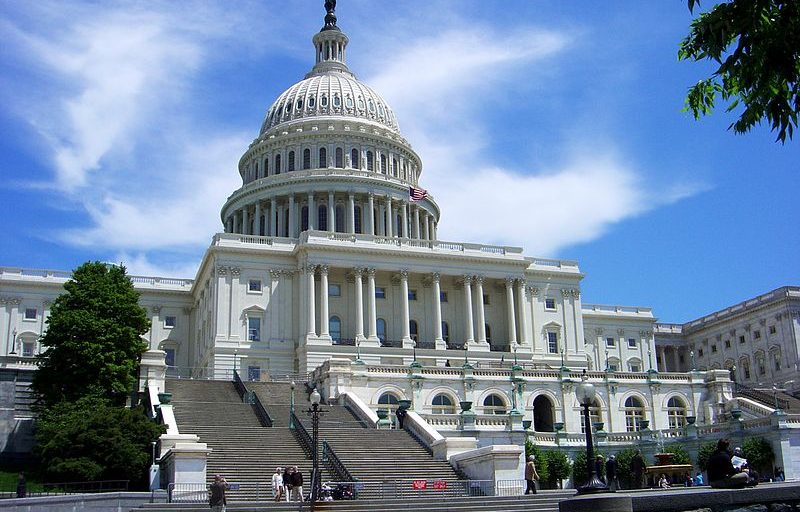Omnibus spending bill cleared by Congress Friday, averting a government shutdown
On the heels of Senate approval the day before, the House passed a $1.7 trillion omnibus spending bill Friday that keeps the government running, funds infrastructure projects, provides disaster relief and further aids in the defense of Ukraine.
With a midnight deadline looming, Congress passed the measure mostly along party lines 225-201. The House also passed a one-week extension of the federal funding deadline. Many members were unable to attend in-person because of Friday’s snowstorm, and instead filed votes by proxy.
“Members have planes to catch, gifts to wrap, toys to assemble, carols to sing, religious services to attend to,” Rep. Nancy Pelosi said before the votes were tallied, in what was probably her last speech as Speaker of the House. “I rise in strong support for this bipartisan omnibus spending bill today, to keep the government from shutting down, but more importantly, to meet the needs of the American people.”
In covering expenses of federal agencies like the Department of Veterans Affairs and the Environmental Protection Agency through 2023, the omnibus bill includes more than $772 billion for non-defense programs and about $858 billion in defense spending, according to a bill summary from Sen. Patrick Leahy, D-Vt., chair of the Senate Committee on Appropriations. Another $45 billion has been set aside to help Ukraine, and around $27 billion is to aid in natural disaster response domestically.
It also provides funding for key federal initiatives including the bipartisan CHIPS and Science Act, the PACT Act (expanding health care to veterans), and the Infrastructure and Jobs Act.
Beyond spending, the measure also updates the 1887 Electoral County Act, which was at the center of last year’s Jan. 6 insurrection riot, increases protections for pregnant workers, makes it easier to accumulate retirement savings, and bans TikTok on government-owned devices.
A statement from Sen. Lisa Murkowski, a Republican from Alaska who co-wrote the legislation, notes it ensures “robust funding for the Army Corps of Engineers, FEMA’s disaster relief fund, mental health, child nutrition, rural housing assistance, energy development and lower energy costs, and many additional state priorities.”
The year-end bill boosts federal spending for education, science, food insecurity and environmental protection. It also funds the 988 suicide and crisis line, reauthorizes Community Mental Health Services Block Grants, and funds maternal mental health.
“I will sign it into law as soon as it reaches my desk,” President Joe Biden vowed in a statement. “This bill will advance cutting-edge research on cancer and other diseases through my ARPA-H initiative. It will put more cops on the beat, invest in community policing, and provide the highest funding level for the Violence Against Women Act in history.”
The measure has widely been lauded by organizations representing American cities and counties. An amendment to earmark the bipartisan State, Local Tribal, and Territorial Fiscal Recovery, Infrastructure, and Disaster Relief Flexibility Act has been noted as particularly beneficial to local governments.
“Championed by Senators John Cornyn (R-Texas) and Alex Padilla (D-Calif.), the amendment will grant additional flexibility to county governments in investing resources from the American Rescue Plan’s Coronavirus State and Local Fiscal Recovery Fund, including infrastructure, community development, and disaster response. It will also provide the U.S. Treasury with much-needed resources to assist counties in deploying recovery funds,” a statement from the National Association of Counties (NACo) notes.
The amendment extends eligibility for local governments to receive allocations from the $1.5 billion Local Assistance and Tribal Consistency Fund, which was authorized under the American Rescue Plan Act, the statement continues.
“This bipartisan amendment offers flexibility for counties to respond to a wider range of local needs and continue to drive the nation’s recovery from the ground up,” said NACo Executive Director Matthew Chase. “Investments in county government are the building blocks for our national economic recovery and the overall strength of our communities.”




















